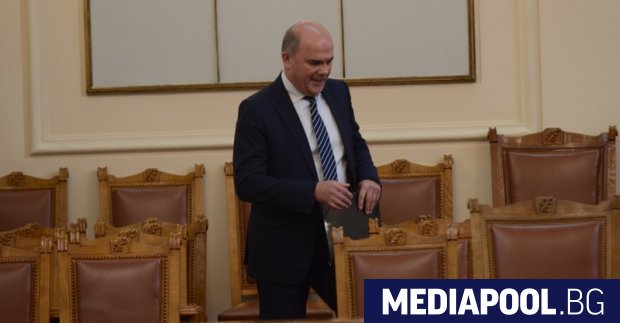In a swift move PM Boyko Borissov sacks Social Policy Minister Biser Petkov
PM Boyko Borissov’s press office announced Friday that the PM had asked Social Policy Minister Biser Petkov to turn in his resignation, which he did. Borissov accepted it and in less than a day Petkov ceased to be minister. His successor, Denitsa Sacheva was approved by parliament and sworn in the following Tuesday.
Borissov did not make any fuss about the firing, which struck as nontypical for the PM. The abrupt removal of the minister was not preceded by a scandal, as is usually the case. Borissov did not announce the move personally (also uncharacteristic of his otherwise abundant media presence persona). Instead he left the press release from his PR office to communicate the matter entirely. There was not anything particular cited as a cause for the decision, except “reasons” which had “piled up over a period of time.” In addition, a general displeasure with the pacing of the work of the ministry was mentioned.
According to Mediapool sources, however, there is a very certain reason, which sparked the PM’s rage to a boiling point. The now-former minister managed to include a 15% increase of social workers’ wages in next year’s budget, which is 5% more than the initially agreed upon 10%. The 5% difference will mean 5 million leva more in the social security budget.
The social workers demanded a 40% increase of their wages during a strike last Thursday. While salaries at the Social Assistance Agency average at about 1200 leva, some social workers work for minimum wage (560 leva per month).
Another possible cause for Borissov’s radical approach might be the follow-up documentary to Kate Blewett’s Bulgaria’s Abandoned Children, which she made in 2007. The film exposed the devastating conditions in a social care home in Mogilino, which housed children with disabilities. Blewett’s new documentary shows little has changed 12 years later. Bulgaria went through a long process of deinstitutionalization: a reform, which aimed to replace the institutions from communist times with protected homes. The homes were designed to be integrated into the community instead of isolated from it.
Borissov did not make any fuss about the firing, which struck as nontypical for the PM. The abrupt removal of the minister was not preceded by a scandal, as is usually the case. Borissov did not announce the move personally (also uncharacteristic of his otherwise abundant media presence persona). Instead he left the press release from his PR office to communicate the matter entirely. There was not anything particular cited as a cause for the decision, except “reasons” which had “piled up over a period of time.” In addition, a general displeasure with the pacing of the work of the ministry was mentioned.
According to Mediapool sources, however, there is a very certain reason, which sparked the PM’s rage to a boiling point. The now-former minister managed to include a 15% increase of social workers’ wages in next year’s budget, which is 5% more than the initially agreed upon 10%. The 5% difference will mean 5 million leva more in the social security budget.
The social workers demanded a 40% increase of their wages during a strike last Thursday. While salaries at the Social Assistance Agency average at about 1200 leva, some social workers work for minimum wage (560 leva per month).
Another possible cause for Borissov’s radical approach might be the follow-up documentary to Kate Blewett’s Bulgaria’s Abandoned Children, which she made in 2007. The film exposed the devastating conditions in a social care home in Mogilino, which housed children with disabilities. Blewett’s new documentary shows little has changed 12 years later. Bulgaria went through a long process of deinstitutionalization: a reform, which aimed to replace the institutions from communist times with protected homes. The homes were designed to be integrated into the community instead of isolated from it.
Източник: mediapool.bg

КОМЕНТАРИ





